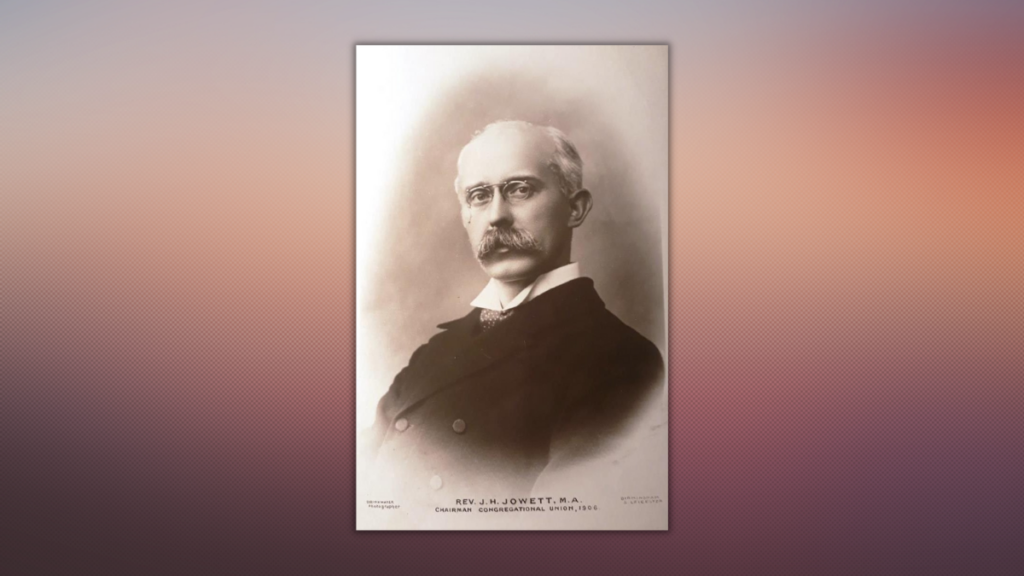By Gene Mason
Leadership Ministries Minute
What would you put on your résumé to impress a future employer? Maybe your experience as a leader or gross sales goals you met? How about your educational background or a list of prestigious roles you’ve had over the years? All of these might catch the eye of the hiring team.
Recently, though, I saw a résumé with an interesting sentence that piqued my curiosity. Under the heading “Skills,” the applicant had written, “I am easy to work with.”

In a culture where we are often concerned exclusively about ourselves — looking to our own advantage, well-being, pleasure or profit without regard for others, this was a refreshingly selfless sentence.
It reflects the New Testament command for Christians, “Do nothing from selfish ambition or conceit, but in humility count others more significant than yourselves. Let each of you look not only to their own interests, but also to the interests of others” (Phil. 2:34).
“I am easy to work with” caused me to think about some ways this might be lived out practically in life and work. How can we be easy to work with?
Be flexible.
Recent research found that nearly three-fourths of all businesses have faced restructuring in the last five years. Change is often hard to adapt to, but it is everywhere. Flexibility is the ability to bend without breaking. It means you are able to accommodate others without sacrificing important values or responsibilities.
Flexible people find ways to make a given situation or scenario work. Instead of complaining about change, they adapt to it.
Flexible people step in to help when others are overloaded. They suggest ways to get something done instead of reasons it can’t be done. And they focus on accomplishing objectives versus comfort in their own feelings or emotions.
Be timely.
Timely people start tasks early and tackle the most difficult items on their list first. They set limits for what they will say yes to and prioritize the day to meet deadlines and stay productive. … Timely people are on time — from traveling to meetings to work demands, they don’t show up late.
Timely people also value the time of others. They stick to a schedule, minimize meetings and delegate tasks that others can do. Realizing their responsibilities also impact others, they strive to maximize their time so that others are not waiting on them or forced to work extra hours because of their delays or missed deadlines.

Scientists say we have a tendency to overestimate what can be completed in a given timeframe. This is called “planning fallacy.” Most people over promise. Timely people are more realistic. They under promise and over deliver.
Be generous.
Generosity is more than giving money to charity or those in need. It is a mindset that puts others first and tends to share resources. Generous people give time to others. They readily share knowledge and information.
Generous people are also confident, knowing that being willing and able to share benefits the whole organization. Generous people encourage and empower. They want others to take pride in their work. They share credit, think of next steps and suggest ways for everyone to benefit on the way to the goal.
They will take on the role of mentor in order to pass along experience and insight. They’ll also assume responsibility for failure and look for ways to push the team forward.
Be hospitable.
People who are easy to work with aim to be friendly, congenial and sociable. They enjoy introducing people and building relational connections. They treat others with grace and kindness and offer help when needed. Hospitable people are warmhearted — they genuinely desire friendship and good relations with all those around them.
The hospitable person looks for the best traits in each person and focuses on positive interaction. They avoid drama in life and work.
October is Pastor Appreciation Month
Honoring your pastor and his family in special ways provides encouragement for the journey ahead. The tips below are from Denise George.
- Work with the pastor to redecorate or renovate the pastor’s office or part of the home.
- Offer services like babysitting, pet care or household chores, giving the pastor more personal or family time.
- Set up a scholarship or fund for the pastor’s children’s education or extracurricular activities.
- Gift the pastor and spouse with tickets to a romantic dinner, the theatre or other activity they would enjoy as a couple, and offer babysitting services.
- Commission a writer or artist to document the pastor’s family journey in an illustrated book or digital format.
- Organize a sabbatical or weekend getaway — a retreat or simple vacation, giving him time to rejuvenate.
- Create themed gift baskets — a “Day Off” basket could include books, snacks and relaxation items, while a “Family Night” basket might feature board games or movie tickets.
- Plan a special day out for the pastor’s family — a trip to a theme park, a movie marathon or a special meal at a popular restaurant. Better yet, give them a vacation package to enjoy quality time together.
True comfort comes from God
On a slow news weekend, except for football, an article popped up about the National Funeral Director’s Association annual convention.
Some refer to it as the “death convention.” No intent to make light of death here. It’s serious stuff.
The article held information aplenty. Did you know that 65% of people prefer cremation over a casket burial?
Affordability is a good argument for it. The death business gets expensive.
Diverse methods can be found to dispose of cremains.
Companies exist that can transform the ashes into a glass bird or angel, make diamonds from the carbon left in the ashes or manufacture rings for your finger.
You can even hang your loved one on the Christmas tree as an ornament.
Parting with the dead is traumatic for family members. People find all sorts of ways to keep the memories alive. And that’s okay.
God gave the gift of memory. Use it. But the people that handle the loss best happen to be Christians. Especially if the deceased was a believer.
The psalmist knew the sting of death.
He said, “Even though I walk through the valley of the shadow of death, I will fear no evil, for You are with me” (Ps. 23:4).
Go the nontraditional route to memorialize someone if you wish.
But the God of comfort offers the best alternative for grief recovery.
That’s neither strange nor fiction. Just truth.
Darryl Wood
“Art from Ashes”
A personal word from a retread pastor, Sept. 27, 2023
The central theme that permeates all of Paul’s letter to the Philippians is God’s glory, which is “the manifestation of His presence among people.”
God’s glory is mentioned in all 4 chapters (1:11; 2:11, 3:19, 21; 4:19, 20) and this is what makes the other themes (joy, love, thanksgiving, prayer, principles of unity) possible and acceptable to Him.
These timely truths written to a first century church are timeless truths for all churches in all centuries.
Morris Murray Jr.
Jasper, Ala.
“I realized that, as a Christian, I had no choice but to surrender. It was hard to do but I will say that after I did surrender, God gave me a peace that I had not had. I knew that we would get through it, said Karen Williams of Blue Blue Feather Candle Company on her husband Mark’s health battles.
“Women all over the world, honestly, are the same. We feel the same; we love the same; we need the same; we come together the same,” said Karen Wilson, president of Baptist World Alliance Women.
Why practice spiritual disciplines? For muscle memory. What we repeat in times of ease we will recall in times of hardship.
@jenniferwilkin
X (formerly Twitter)
Outside of Daniel 12, the Old Testament barely refers to eternal life or resurrection after death for God’s followers. Those concepts remained underdeveloped before the New Testament.
Daniel received prophecies in instructions directly from an angel who came from God. “Go forth,” the angel Michael said in verse 13, repeating an instruction from verse 9. He was telling Daniel to live for God until he dies. The Hebrew word spoken here as a command communicates three ideas: 1. Do not stay or pause in your current location or state. 2. Take initiative and take action. 3. Act with a purpose or destination.
Daniel’s purpose or destination was to live for God until the moment of his death. Stopping early was not an option. With Michael’s command, the only option was actively and intentionally living for God.
Kevin Parker
“Keep Living for the Lord”
gobnm.com
“Annie Armstrong once said, ‘God never issues a command without making obedience possible.’ People are moving across the planet in unprecedented ways, gaining access to the gospel being proclaimed in North America. … We celebrate gifts to the Annie Armstrong Easter Offering and are grateful to Southern Baptists for their generosity,” said Sandy Wisdom-Martin in response to the report that over the past year, Southern Baptists gave an all-time record $70.2 million to the Annie Armstrong Easter Offering for North American missions.
Parents, it is absolutely critical that your children live in community in your local church. For that to happen, parents must live in community as well. Sanctification is a community project.
@pastorjaycbc
X (formerly Twitter)
The four sweeping movements of salvation:
-Creation.
-Fall.
-Redemption.
-Consummation.
The world we have is not the world we had, nor is it the world we will have. God will make all things new!
@claysmith79
X (formerly Twitter)







Share with others: